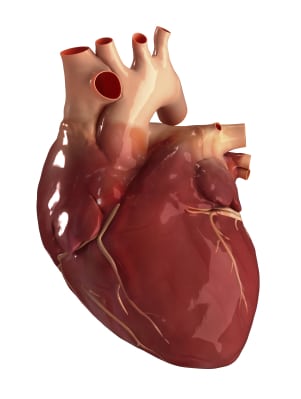 What can reduce all-cause mortality by 27%, reduce ventricular arrhythmias by 65%, and reduce angina symptoms by 40% in patients experiencing a heart attack? Statin drugs? No, not statin drugs, but rather L-carnitine, a compound found in red meat and in nutritional supplements. The Mayo Clinic performed a meta-analysis of 13 clinical controlled studies involving 3,629 individuals and found that L-carnitine provides the aforementioned benefits.
What can reduce all-cause mortality by 27%, reduce ventricular arrhythmias by 65%, and reduce angina symptoms by 40% in patients experiencing a heart attack? Statin drugs? No, not statin drugs, but rather L-carnitine, a compound found in red meat and in nutritional supplements. The Mayo Clinic performed a meta-analysis of 13 clinical controlled studies involving 3,629 individuals and found that L-carnitine provides the aforementioned benefits.
What is L-Carnitine?
L-carnitine is a compound that helps burn fat providing energy to the heart and skeletal muscles. It moves long-chain fatty acids into the cells. It is also an antioxidant neutralizing free radicals that damage cells. L-carnitine has long been used by athletes to improve athletic performance at high-intensity levels and to facilitate recovery following exercise. It essentially delays muscle fatigue and decreases the accumulation of lactic acid, a byproduct of glucose metabolism.
L-Carnitine and Heart Disease
Since the heart is a muscle, L-carnitine provides similar benefits to it as it does skeletal muscle. This means the heart can work more efficiently and at higher demands. Low levels of L-carnitine are associated with heart failure. It also improves blood flow and increases HDL or good cholesterol while lowering LDL or bad cholesterol.
L-Carnitine, Weight Loss, and Diabetes
L-carnitine along with lifestyle changes can improve weight loss by enabling the body to burn more fat, and by also increasing the overall metabolic rate. A study of obese 13 to 17-year-old adolescents found that individuals who took 2 grams of L-carnitine a day plus exercise and nutrition counseling lost 11 pounds after 3 months, while those who just received exercise and nutrition counseling lost only 1.5 pounds.
Two grams of L-carnitine a day for 10 days improved insulin sensitivity while 3 grams a day significantly reduced blood sugar spikes during a oral glucose tolerance test for diabetes.
The antioxidant effects of L-carnitine protect the mitochondria (energy-producing organelles of the cell) from free radicals. Mitochondria decline as we age and L-carnitine can minimize this age-related decline (see Mitochondrial Theory of Aging)
Acetyl-L-Carnitine
Acetyl-L-carnitine is a modified form of L-carnitine and can boost testosterone levels improving muscle and bone mass, mood, and sex drive in both men and women. Acety-L-carnitine is able to cross the blood-brain barrier and facilitates the production of acetylcholine, one of the major neurotransmitters. Acetylcholine plays a vital role in memory and neurocognition. Acetyl-L-carnitine has been shown to minimize mental decline associated with alcoholism and Alzheimer’s disease.
L-carnitine Dosage
Most of the health benefits of L-carnitine occur with supplementation of 2 to 3 grams a day and it’s best to split that daily dose in half so that you are taking 1 to 1.5 grams twice a day. Consider adding this important nutrient to your supplement plan.
